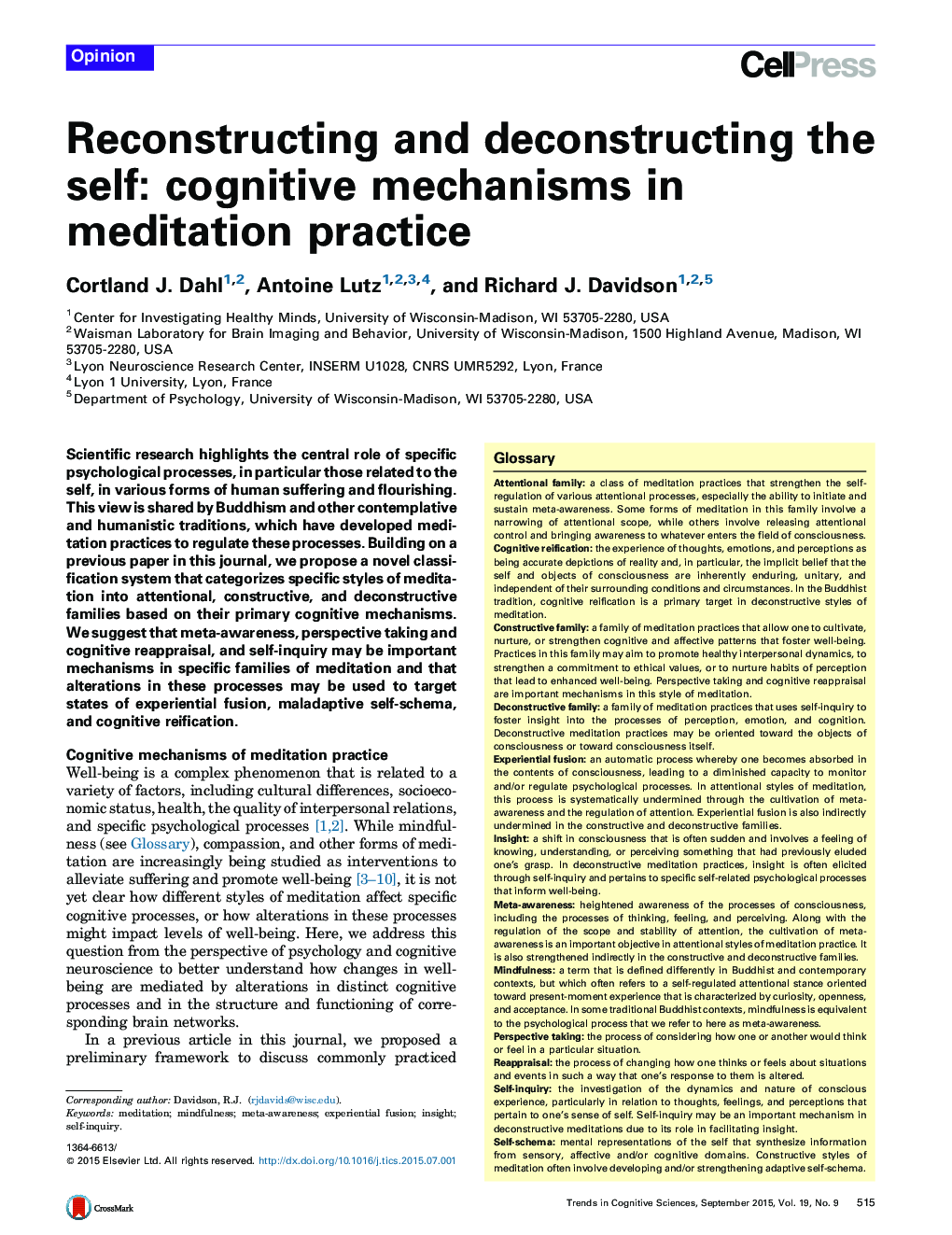| Article ID | Journal | Published Year | Pages | File Type |
|---|---|---|---|---|
| 141367 | Trends in Cognitive Sciences | 2015 | 9 Pages |
•Specific mechanisms and targets of different forms of meditation are proposed.•We present a model of attentional, constructive, deconstructive meditations.•Meta-awareness, experiential fusion, self-schema, self-inquiry, and insight are discussed.
Scientific research highlights the central role of specific psychological processes, in particular those related to the self, in various forms of human suffering and flourishing. This view is shared by Buddhism and other contemplative and humanistic traditions, which have developed meditation practices to regulate these processes. Building on a previous paper in this journal, we propose a novel classification system that categorizes specific styles of meditation into attentional, constructive, and deconstructive families based on their primary cognitive mechanisms. We suggest that meta-awareness, perspective taking and cognitive reappraisal, and self-inquiry may be important mechanisms in specific families of meditation and that alterations in these processes may be used to target states of experiential fusion, maladaptive self-schema, and cognitive reification.
